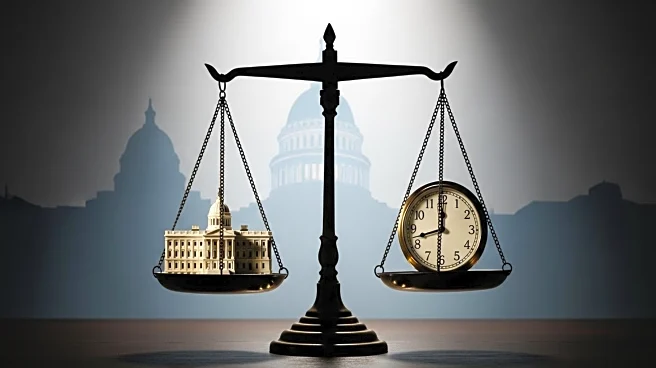What's Happening?
The U.S. government is on the brink of a shutdown as Congress has yet to agree on a short-term funding bill. Republicans, controlling both chambers, are pushing a stopgap measure to extend funding through November 21, which has passed the House but failed in the Senate. Democrats demand concessions on health care funding, including extending subsidies for the Affordable Care Act and reversing Medicaid cuts. The White House has threatened permanent layoffs of federal workers if a shutdown occurs.
Why It's Important?
A government shutdown could have widespread effects, including furloughs for federal employees and disruptions to services. The political deadlock reflects deep divisions over budget priorities, particularly in health care. The potential layoffs and funding lapses could impact public trust in government and economic stability, with long-term consequences for federal programs and services.
What's Next?
If Congress does not reach an agreement, the shutdown will begin, affecting various government operations. Lawmakers may face increased pressure to negotiate a resolution to avoid prolonged disruptions. The political fallout could influence future budget negotiations and impact public perception of both parties.









